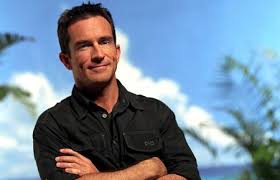Most of us do not always hear about the topic of male sexual abuse. Why? Most men do not want to talk about it. Do they go to a therapist to talk to them about it? Not always. There is a general need to deny the existence of male sexual assault. It is rooted in the belief that men are immune to being victimized.
There is a belief that men can’t be forced into sex, either they want it or they don’t. Such stupid beliefs leave the man feeling isolated, ashamed, and “less of a man.” Even self-blame, leaves men suffering in silence after being sexually assaulted.
5 to 20 percent of all victims of sexual assaults are actually reported. This is another sad fact, why we don’t hear of these sadistic acts. For most men, the idea of being a victim is hard to handle. These beliefs about manliness and masculinity are deeply pressed into our brothers as men. Some male survivors even question themselves, because in their minds they failed to defend themselves.
Male survivors see their assault as a loss of manhood and get disgusted with themselves because in their minds they did not fight hard enough. Their feelings are a normal reaction, but their thoughts are not valid. As a result of that, they feel shame and become very angry, so much so that some get into self-destructive behavior, like alcohol or drug abuse. Increased aggressiveness, like arguing with coworkers and others resort to picking fights.
This type of assault could affect and develop increased sexual difficulties. It may be difficult to resume sexual relationships, because it may trigger flashbacks, memories of the attack, or just bad feelings. Do not pressure yourself to be sexual before you are ready. Being sexually assaulted has nothing to do with sexual orientation. People do not become gay as a result of being sexually assaulted.
Gay men, however, already suffer from internal conflicts about their sexuality. Being sexually assaulted may lead a gay man to believe he deserved it. That it was the paying price for his sexual orientation. This self-blame, which, unfortunately, can be reinforced by the ignorance or intolerance of others who blame the victim by suggesting that a gay victim somehow provoked the assault or was less harmed by it because he was gay.
Gay men may also hesitate to report a sexual assault due to fears of, disbelief or intolerance by police or medical personnel. Because of this assault, gay men may be deprived of legal protection and necessary medical attention. Some sexual assaults of men are actually forms of gay-bashing, are at times motivated by fear, bullying, and hatred of homosexuality. Perpetrators may verbally abuse their victims and imply that the victim deserved to be sexually assaulted.
It is important to remember that sexual assault is an act of violence, power, and control that NO ONE DESERVES THAT.
What to do if you have just been sexually assaulted
- Get to a safe place
- Call someone who can help you: a friend or the police – 911.
- Do not shower, drink, eat or change your clothes. These activities can destroy evidence should you decide to press charges.
- Get medical attention – Hospital staff knows what to do in cases like this. Using a Rape kit.
- Write everything down that you can remember. this may become helpful in any legal action that you may decide to take.
The trauma of sexual assault involves losing control of your own body and fearing life or death. Whether you are a man or a woman, sexual assault is traumatizing. There are certain ways that we can react to trauma that are the same for men and women. “Rape trauma syndrome” is a term mental health professionals use to describe the common reactions that occur for both men and women after a sexual assault. “Rape trauma syndrome” is not an illness. It is an abnormal reaction to a traumatic event.
Many blessings to you, may our creator of miracles, protect all of you.
Stay in good health.